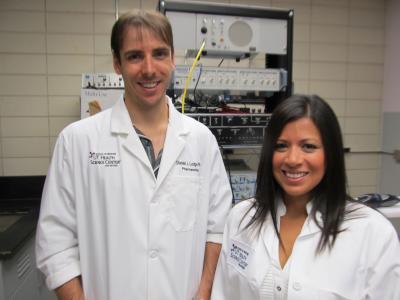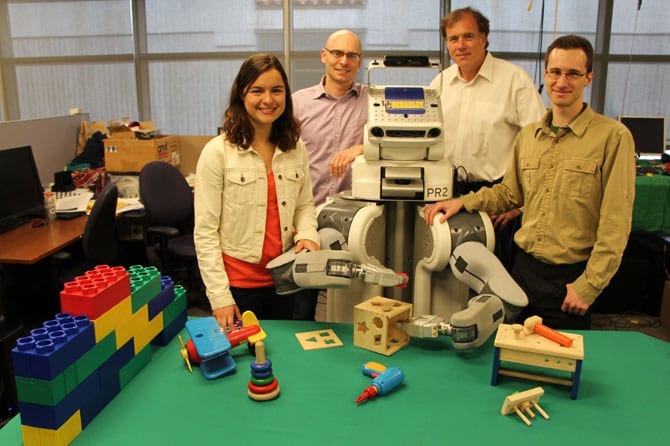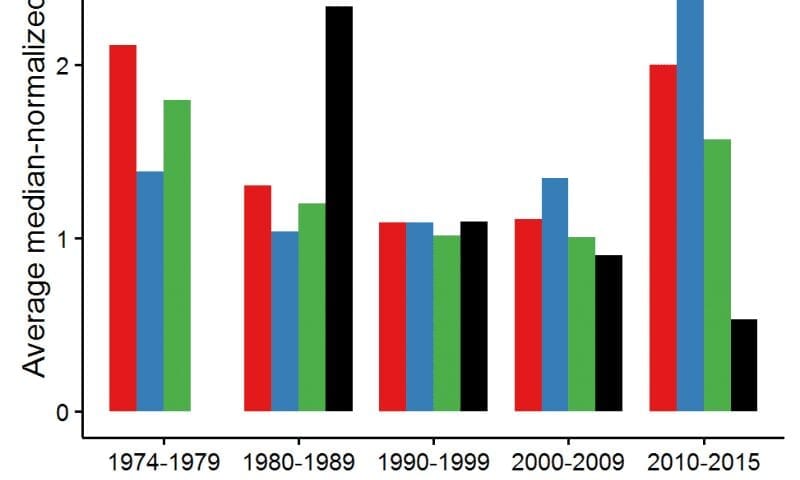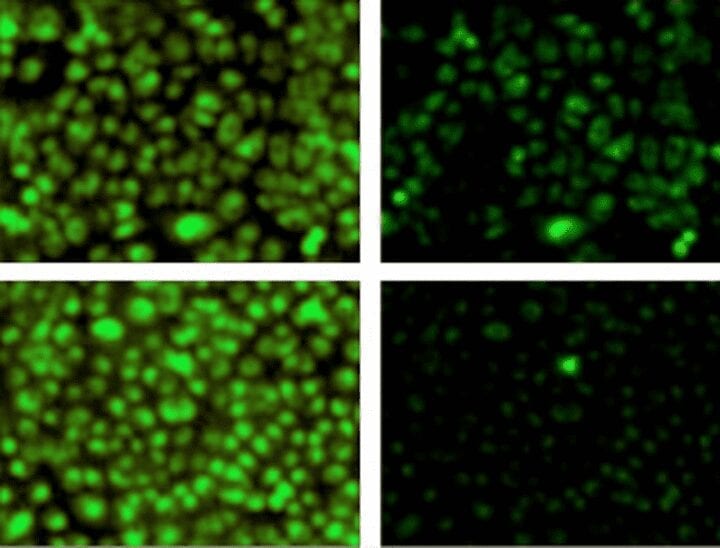
Rodent research suggests feasibility of restoring neuron function
Research from the School of Medicine at The University of Texas Health Science Center at San Antonio suggests the exciting possibility of using cell transplants to treat schizophrenia.
Cells called “interneurons” inhibit activity within brain regions, but this braking or governing function is impaired in schizophrenia. Consequently, a group of nerve cells called the dopamine system go into overdrive. Different branches of the dopamine system are involved in cognition, movement and emotions.
“Since these cells are not functioning properly, our idea is to replace them,” said study senior author Daniel Lodge, Ph.D., assistant professor of pharmacology in the School of Medicine.
Transplant restored normal function
Dr. Lodge and lead author Stephanie Perez, graduate student in his laboratory, biopsied tissue from rat fetuses, isolated cells from the tissue and injected the cells into a brain center called the hippocampus. This center regulates the dopamine system and plays a role in learning, memory and executive functions such as decision making. Rats treated with the transplanted cells have restored hippocampal and dopamine function.
Stem cells are able to become different types of cells, and in this case interneurons were selected. “We put in a lot of cells and not all survived, but a significant portion did and restored hippocampal and dopamine function back to normal,” Dr. Lodge said.
‘You can essentially fix the problem’
Unlike traditional approaches to treating schizophrenia, such as medications and deep-brain stimulation, transplantation of interneurons potentially can produce a permanent solution. “You can essentially fix the problem,” Dr. Lodge said. “Ultimately, if this is translated to humans, we want to reprogram a patient’s own cells and use them.”
The Latest Bing News on:
Schizophrenia
- Newron’s add-on schizophrenia therapy finds success in Phase II/III trialon May 1, 2024 at 3:22 am
The therapy met endpoints in the Phase II/III trial, with Newron considering a pivotal Phase III study in patients with treatment-resistant schizophrenia.
- Newron Announces Positive Top-line Results From Potentially Pivotal Phase II/III Study 008A With Evenamide in Schizophrenia Patientson April 30, 2024 at 4:00 am
Newron announces positive top-line results from potentially pivotal Phase II/III study 008A with evenamide in schizophrenia patients ...
- Newron's schizophrenia add-on improves symptoms, charging up case for phase 3 teston April 30, 2024 at 2:13 am
Newron Pharmaceuticals’ add-on schizophrenia treatment improved both positive and negative symptoms as well as severity in patients with the disorder during a phase 2/3 study. The Italian biotech is ...
- EQS-News: Newron announces positive top-line results from potentially pivotal Phase II/III study 008A with evenamide in schizophrenia patientson April 29, 2024 at 10:38 pm
Newron announces positive top-line results from potentially pivotal Phase II/III study 008A with evenamide in schizophrenia patients Primary endpoint and key secondary endpoint of study met; drug was ...
- Who Relapses From Schizophrenia?on April 29, 2024 at 7:17 am
A study identified a large population of patients with schizophrenia and examined factors related to relapse. Factors of relapse had to do with race, insurance access, and medication nonadherence, ...
- Union City man with schizophrenia goes missing day after birthdayon April 27, 2024 at 2:19 pm
UNION CITY, Ga. - A Union City man diagnosed with schizophrenia was reported missing just a day after his 41st birthday. A Mattie's Call, Georgia's emergency missing alert for disabled or elderly ...
- Treatment Patch For Schizophrenia: Newly Listed Alto Neuroscience Is Uniquely Positioned In Neuropsychiatry Landscapeon April 23, 2024 at 12:05 pm
Alto Neuroscience reported positive results for its novel PDE4 inhibitor in a Phase 1 study for cognitive impairment associated with schizophrenia.
- Breathtaking News for Depression and Schizophreniaon April 23, 2024 at 8:19 am
As long as there's breath in our lungs our story is still being written.” –Bart Millard Two chemicals from breath samples, butyrate and trimethylamine, are sufficient to distinguish depression and ...
- Physical Ills Often Plague People With Schizophrenia, Bipolaron April 23, 2024 at 5:18 am
Estimates show people with schizophrenia or bipolar disorder are 2.4 times more likely than mentally healthy people to have two or more physical ailments, researchers found. The chronic disease burden ...
- Schizophrenia Causes: Genetics, Environment, and Moreon April 19, 2024 at 4:59 pm
Doctors don’t know for sure what causes schizophrenia. Research shows a combination of genetics and your environment can trigger the disease. If you have a family member with schizophrenia ...
The Latest Google Headlines on:
Schizophrenia
[google_news title=”” keyword=”schizophrenia” num_posts=”10″ blurb_length=”0″ show_thumb=”left”]
The Latest Bing News on:
Restoring neuron function
- Spinal Cord Injury Damages Metabolism, and Scientists Now Know Whyon April 29, 2024 at 3:40 am
Heart disease and type 2 diabetes are among the leading causes of death in people with a spinal cord injury, researchers explained in background notes. Researchers suspected these disorders might be ...
- Revolutionizing Spinal Injury Treatment: Common Drug Found To Prevent Damage to Fat Tissueon April 27, 2024 at 10:17 pm
Study in mice finds that a widely-used medication prevents damage to fat tissue from injuries A new animal study suggests that conditions like diabetes, heart attacks, and vascular diseases, commonly ...
- Stop the Variant, Save the Channelon April 25, 2024 at 9:07 am
By using antisense oligonucleotides to inhibit a mutated exon associated with Timothy syndrome mutation, researchers restored neuron function.
- After spinal cord injury, neurons wreak havoc on metabolismon April 24, 2024 at 10:48 am
After discovering the connection between dysregulated neuron function and the breakdown of triglycerides ... Tedeschi’s lab has previously shown in animal studies that gabapentin helped restore limb ...
- After spinal cord injury, neurons wreak havoc on metabolism: Study finds common drug may prevent some of the effectson April 24, 2024 at 10:14 am
Conditions such as diabetes, heart attack, and vascular diseases commonly diagnosed in people with spinal cord injuries can be traced to abnormal post-injury neuronal activity that causes abdominal ...
- After spinal cord injury, neurons wreak havoc on metabolismon April 23, 2024 at 5:00 pm
After discovering the connection between dysregulated neuron function and the breakdown ... in animal studies that gabapentin helped restore limb function after spinal cord injury and boosted ...
- Empty-handed neurons might cause neurodegenerative diseaseson April 19, 2024 at 10:33 pm
Researchers from Tokyo Metropolitan University have identified how proteins collect abnormally in neurons, a feature of neurodegenerative diseases like Alzheimer’s. They used fruit flies to show that ...
- Two major breakthroughs in Fragile X Syndrome treatmentson April 16, 2024 at 9:49 am
The FDA has cleared Spinogenix’s Phase II trial of SPG601, as the European Commission grants orphan drug status to zatolmilast.
- New study suggests enhanced mitochondrial fusion fuels nerve cell function and plasticityon April 5, 2024 at 9:08 am
the scientists hope that these results will guide them toward specific interventions to restore neuronal plasticity and cognitive functions in conditions of disease.
- Fuelling nerve cell function and plasticityon April 4, 2024 at 5:00 pm
the scientists hope that these results will guide them towards specific interventions to restore neuronal plasticity and cognitive functions in conditions of disease.
The Latest Google Headlines on:
Restoring neuron function
[google_news title=”” keyword=”restoring neuron function” num_posts=”10″ blurb_length=”0″ show_thumb=”left”]










